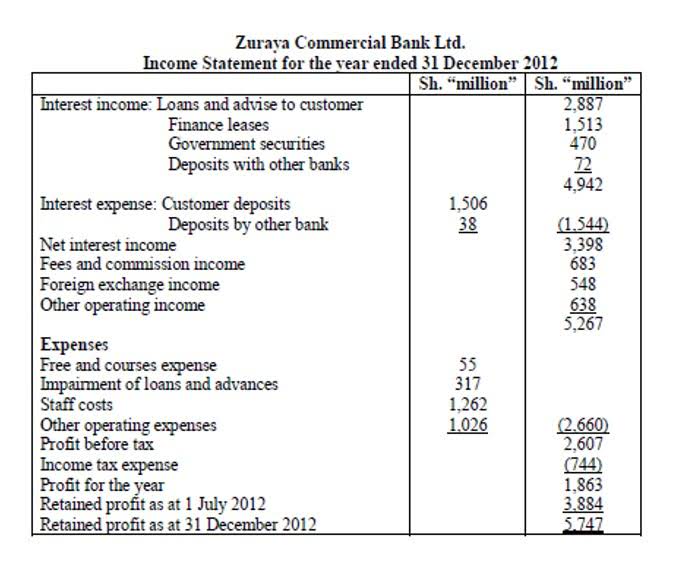
They also help maintain a standardized methodology that allows stakeholders, including investors and regulators, to understand and trust companies’ financial statements easily. Another important principle is the principle of consistency, which requires businesses to use the same accounting methods and procedures from one period to the next. This principle helps to ensure that financial statements are comparable over time and that changes in a company’s financial position and performance Bookkeeping for Painters can be accurately assessed. Overall, accounting principles are essential for businesses to maintain accurate financial records and communicate financial information to stakeholders. By following these principles, businesses can ensure that their financial statements are reliable, consistent, and useful for decision-making.
- Gaining at least a conceptual understanding of the motivations behind GAAP will help you keep the financial reporting side of your business running smoothly.
- Examples include historical cost, revenue recognition, full disclosure, materiality, and consistency.
- Therefore, a company will report some revenues on its income statement before a customer pays for the goods or services it has received.
- Revenue is recognized when realized, realizable, and earned, not necessarily when cash is received.
- Assets are then remain on the balance sheet at their historical without being adjusted for fluctuations in market value.
- Reasonable adjustments are not guaranteed where applications are submitted late in the semester (for example, when lodged just prior to critical assessment and examination dates).
Accounting Concepts

GAAP must always be followed by accountants and businesses when handling financial information. At no What is bookkeeping point can a company or financial team choose to ignore or modify any of the regulations. Outside the U.S., the most commonly used accounting regulations are known as the International Financial Reporting Standards (IFRS). The IFRS is used in over 100 countries, including countries in the European Union, Japan, Australia and Canada.

Frequently Asked Questions About GAAP

Also known as the objectivity principle, the reliability principle is used as a guide for knowing what information is accurate, trustworthy, fair, and relevant. Only those transactions that can easily be verified with evidence should be recorded in accounts. The Monetary Unit Assumption concept states that if transactions and other activities can be measured and expressed in monetary terms they can be recorded on the balance sheet.

Legit Expenses That Reduce Tax in Books of Accounts
We focus on financial statement reporting and do not discuss how that differs from income tax reporting. Therefore, you should always consult with accounting and tax professionals for assistance with your specific circumstances. For financial statements to be relevant they should be distributed as soon as possible after the end of the accounting period. The going concern assumption means the accountant believes that the company will not be liquidated in the foreseeable future. In other words, the company will be able to continue operating long enough to meet its obligations and commitments.
- The principles of accounting are essential for businesses to maintain accurate financial records.
- The Accountant’s Code of Ethics is a set of rules and ethical principles that guide accountants in their work, whether employed in private companies, government entities, or as independent consultants.
- Accounting acts like a business’s immune system, protecting it from the build-up of small mistakes that could lead to significant financial trouble.
- Now the accountant has to choose one from two choices – first, ignore the loss the company may incur on selling the machinery before it’s sold; second, report the loss on machinery immediately.
- Reports must therefore be thorough and clear, without any omissions or modifications.
- In addition to statutory requirements, good accounting practice requires that all material information be disclosed fully and fairly in the financial statements.
- When compiling reports, accountants must assume a business will continue to operate.
- Thus, we should assume that there will be another accounting period in the future.
- A company selling merchandise on credit will record these sales in a Sales account and in an Accounts Receivable account.
- If an asset’s fair value drops below its book or carrying value, the asset’s book value may have to be decreased and an impairment loss reported on the income statement.
- These laws established the Securities and Exchange Commission (SEC) and mandated standardized financial reporting for public companies.
Essentially, any information that could impact important business decisions relating to the company and its activities must be reported openly in its financial statements. Different financial statements are created in relation to different accounting periods. As per the matching concept, all expenses matched with the revenue of that period should only be considered. Any past or future year’s expenses and revenues accounting definition are excluded using certain adjustments.

Generally Accepted Accounting Principles:
- Companies required to meet GAAP standards must do so in all financial reporting or risk facing significant consequences.
- IFRS principles are issued and updated by the International Accounting Standards Board (IASB), an independent and private organization based in London.
- In conclusion, accounting principles are important because they provide a framework for consistent and reliable financial reporting.
- Accountants use accounting principles to prepare financial statements that provide a clear picture of a company’s financial position, performance, and cash flows.
- You will be able to reference these principles and reason your way through revenue, expense, and any other combination of problems later on in the study course.
- Any financial statement must accurately reflect all of the company’s assets, expenses, liabilities and other financial commitments.
In the United States, the Financial Accounting Standards Board (FASB) is responsible for maintaining GAAP, while the International Accounting Standards Board (IASB) is responsible for maintaining IFRS. If any cost continuously changes, suppose due to a change in market prices, it will be difficult for the bookkeeper to show them in the books. The FASB is an independent nonprofit organization in the United States that sets accounting standards for private companies and nonprofits. If a company incurs a substantial one-time expense relative to its overall revenue, it should be reported separately to ensure stakeholders understand its impact.
